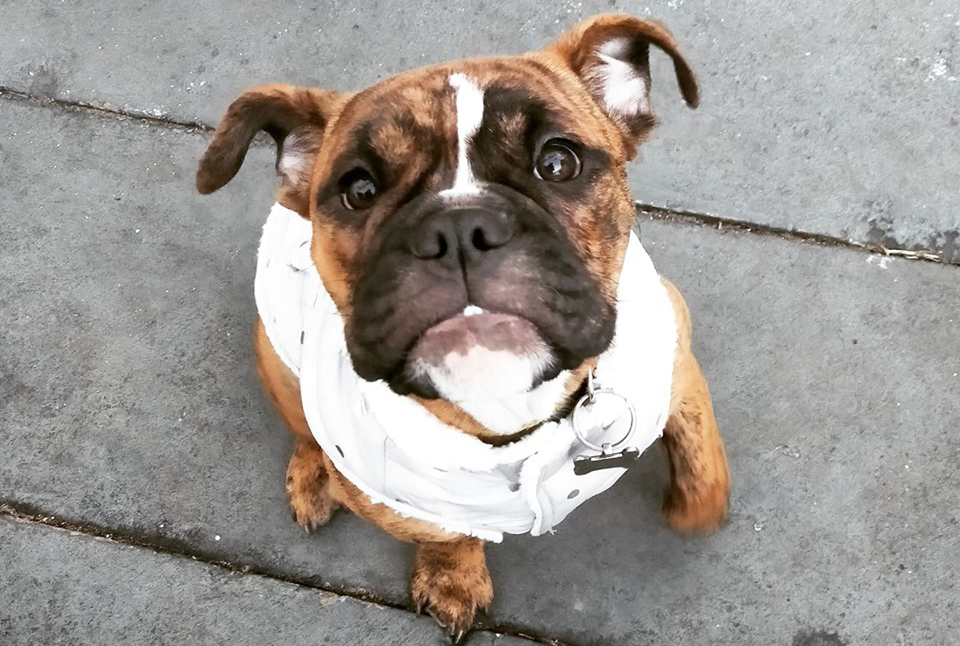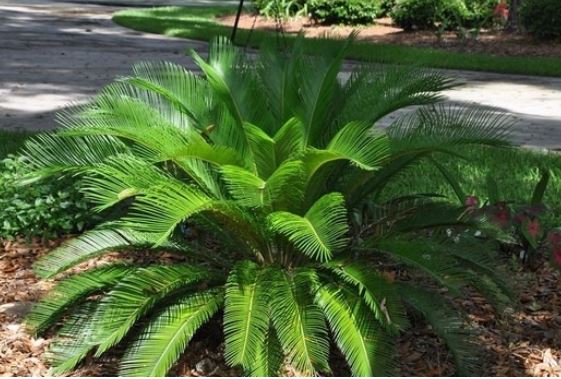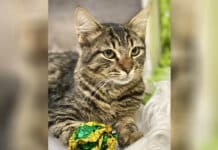
A Bundaberg couple is urging pet owners to be aware of toxic plants around the home after their seven-month-old puppy died from eating a poisonous root in their backyard.
Before Emily Shoenberger and Thomas Clark moved into their new house on the weekend, they knew they had to get rid of the large sago palm from their garden.
The sago palm is one of the most toxic plants to pets, and having two beautiful Australian bulldogs of their own, removing the plant was on the couple’s high priority list.
However, their efforts to keep their beloved pets safe were in vein.
“I came home to find our puppy Bean furiously vomiting with diarrhoea, and she was stiff and pale,” Emily said.

“I was petrified. I raced her to emergency.”
The couple said even though they had removed the entire plant from the garden, a small root had been hidden deep within the soil.
“Unfortunately our little scavenger managed to pull up the small root remaining,” Emily said.
“She was monitored overnight but went downhill at 3am. We had to say goodbye to our baby.”
The local couple are now sharing their story in the hope it will help other pet owners identify and remove poisonous plants.
“More people need to be aware about the dangers of plants to their pets,” Emily said.
“This particular plant, the sago palm, is extremely common and is sold in most garden shops.”
Sago palms are toxic plants

Sago palms contain a toxin called cycasin which is found in the seeds, fruit and base of the plant, according to Vetwest Animal Hospitals.
These plants are extremely toxic to dogs and can cause vomiting, abdominal pain, diarrhoea, hind leg weakness, coma, bleeding and death due to liver failure.
Symptoms can start as early as three hours after ingestion but it can take up to 48 hours for abnormalities to show on a blood test.
When ingested the toxin can affect 95% of cases and the death rate has been reported to be as high as 32%.
10 toxic plants for pets
According to RSPCA Queensland, many people are not aware of how toxic some indoor and outdoor plants and cut flower arrangements can be to pets.
Below are some of the plants that should be kept out of reach from your furry friends.
- Sago Palm/Japanese fern – potentially fatal
- Lilies – all parts are quite toxic to cats if eaten. Causes inflammation of the stomach, progresses to acute renal failure and may be fatal if left untreated.
- Azalea – Paralysis of the muscles, depression of the nervous system
- Aloe vera – vomiting, diarrhoea, tremors
- Baby’s breath – vomiting, diarrhoea
- Cycads – Leaves and nuts are highly toxic when eaten. Symptoms can be irregular stiffness when walking, liver and tissue damage, and paralysis
- Dumbcane and Elephant’s Ear – Upset stomach, oral irritation, asphyxiation, tremors, seizures, difficulty balancing
- Gladiola – salivation, lethargy
- Ivy – Symptoms range due to a wide variety of toxins
- Tomato plant – diarrhoea, weakness, slow heart rate
For the full list click here.
Take action
If you think your pet has ingested a toxic plant, call your vet straight away.
- Other news: Farm animals get love and life with Clark family








Thanks for the info on plants and dogs. I grow a lot of tomatoes and just throw the trimmings on the ground. I printed the complete list and am going to check the yard.
What some dog owners may not know is that there are some plants and flowers that are dangerous to our furry family members. It is better to do some research about our garden and plants to prevent dogs from getting poisoned. Also, train your dogs not to eat anything else. In the worst case, call your vet once your dog got poisoned.
Comments are closed.